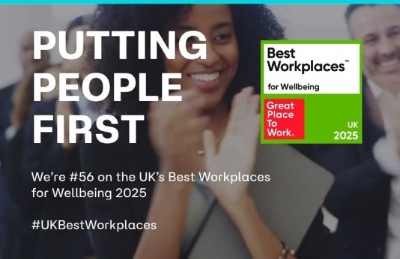Another grim week for unemployment figures.
Not wishing to brag, but I am a leading international expert in the field of unemployment. Not through any God-given talent, best-selling books or insightful research. Simply because I was unemployed no less than seven times in just nine hideous years. See a recent article (read here) to learn about the gory details of how life's slings and arrows left me, once again, unemployed.
So, if you find yourself - sadly like large numbers of others right now - in this utterly miserable situation, I feel your pain. Deeply.
However, I can vouch that the last thing that you need right now is sympathy. Empathy perhaps, but I anticipate what you need most is valuable, practical and straightforward advice. Advice that has been proven to work and can help get you back into work fast.
I thought it may help to condense these learnings into my top ten survival tips for unemployment. In short, how to hold it all together and ultimately bounce back quicker and stronger.
Survival tip 10: Accept the result
As they say at every self-respecting alcohol and addiction clinic - or in my case psychiatric ward - until you 'accept' the reality that you have a problem or condition, you have no chance of addressing said problem.
This 'Accept The Result' principle applies to job loss too, regardless no matter how unjust the manner of your departure. In my case, no less than three of my dramatic exits were at the peak of the most productive and successful periods in my entire career. Hard to believe - let alone accept - but a combination of ego, hubris and Founder's Syndrome (Google it) led to my sudden and gut-wrenching departures when I was right at the top of my game. While every ounce of my soul - and many of my stunned colleagues - urged me to fight these decisions, I learned from bitter experience to move on and swallow the pill, no matter how bitter the taste.
Survival tip 9: Put your oxygen mask on first
I still vividly remember - in those heady days when you could actually fly in aeroplanes - reading the safety instruction for parents: "In the event of an emergency, put your own oxygen mask on first, before attending to your children". My initial reaction - as someone fairly new to the parenting game - was that this instruction was at best baffling and at worse life-threatening to my most treasured possessions. Once the penny finally dropped, it made all the sense in the world and is a perfect analogy for that moment when you find out that you are now officially unemployed.
Bottom line, unemployment is purgatory but don't make it any worse on yourself by forgetting the fundamentals about looking after number one. Skipping the exercise routine, throwing the (relatively) balanced diet out of the window or hitting the proverbial bottle a little too hard are all rebound inhibitors. Trust me I've got all three t-shirts in multiple colours. Getting yourself back in the game - and fast - is the number one priority for your family. So in a nutshell, put yourself first. Be more selfish.
Survival tip 8: Batten down the hatches
One of the scariest statistics I recall about unemployment was that the average time 'out of work' for corporate management was 211 days. Yup, you read that right. And that stat was at a time of low unemployment when global pandemics were contained to the fiction section of Blockbuster Video or your local library.
When it comes to financial planning for unemployment, beware of 'boosterism', undue optimism or downright wishful thinking. I majored in all three. While staying upbeat is absolutely critical for your chances of actually landing a new role, plan for the worse case financially.
Job number one - before even looking for a job - is to batten down the financial hatches. Plan financially to be out of work for at least a year and stop every single discretionary spend in the family immediately. Out goes the Netflix subscription, monthly fruit boxes and evenings out at your local Chinese. There will be weeping and gnashing of teeth from loved ones no doubt, but suck it up. Until you get a job, non-essential spending is banned for the whole family. It sure beats foreclosure.
Survival tip 7: Friends are not always friends
The single biggest surprise to me when I lost my job the first time was this: it's not always the people that you expect to help you most who actually do. You are now, after all, damaged goods. Indeed, counterintuitively I found that while several of my closest former business friends dropped me like a hot potato, some people that I didn't know that well opened countless invaluable doors. For managers and above, you will almost certainly find a new job through your network - albeit quite possibly from the last person that you expected.
Survival tip 6: Recruiters don't work for you
Another big 'aha moment' from my unemployment journey was that recruiters don't actually work for you. Who knew? Call me deeply naive, but after 23 years of gainful employment, I assumed these hot-shot recruiters would be on my side, representing me and helping me get a job.
Apparently not. Their job is to find a fit for the client roles that they are handling and the more progressive recruiters may even consider specific future roles. If you fail to fit either criterion, you are worthless to them. Get over it. There is no place for pride after a fall.
Survival tip 5: Give before you get
If you are going to approach people in your own network - which is an absolute imperative - think about what you can do to help them first.
We've all been there. With the best will in the world, a former employee or colleague contacts you and explains that they have recently joined the 'club' and could you help them find a job. That's it. The onus is now on you to do their leg work and help them with their job search when you are already exceptionally busy and frankly clinging on for dear life to your own job.
However, what about if they had offered to help you in some small way - using their own transferrable talents or perhaps to make a meaningful connection - well then you have a totally different scenario. So yes, for every contact that you are considering asking to help you with your search, first think how you can give before you get.
Survival tip 4: Cold applications bring cold comfort
If you are new to this whole jobless malarkey and mid-career, you may well be tempted to jump online, do a little browsing, find a (sort of) suitable job vacancy and lob in your CV 'cold', with little more than a wing and a prayer.
Spare yourself the effort and go for a nice walk in the park or dip in a river. 99 times out 100, you won't even get in the pile.
Forget the cold-call model and find a select few 'warm' opportunities with prospective companies where you may have a good contact. An angle to get your CV or resume into the pile, preferably towards the top. Find that angle and improve your odds. Exponentially, after all, it's not what you know... Of my own seven job offers, not one came from a cold application.
Now, this advice might seem obviously directed to those newly unemployed in middle to senior management - but that's misleading. Even if you are starting out or still at an early stage in your career, you need to make those applications and tap your network as well. It's much bigger than you think.
Survival tip 3: Sell yourself
Job hunting = SALES. If you don't like sales or don’t see yourself as a salesperson, get over it. No one else is going to be selling you - perhaps they may open a door or help get your CV in the pile - but only you can actually make the sale.
Unlike Del-Boy flogging his 'silver' spoons, this is a high-level consultative sales project. A nuanced, mutually beneficial transaction. But still a sale. Forget the standard CV and covering letter; both need to be tailored perfectly to the prospective employer - along with a portfolio and your personal branding - to ensure you stand out from the crowd.
When it comes to the interview process you need to know everything there is to (legally) know about your interviewers to create that all-important initial connection. A friend, football team, pastime or university in common, it doesn't matter what, just find it. Fortunately, LinkedIn is the gift from the Gods for this underrated detective work.
In conclusion, when it comes to getting a job you need to sell yourself as if the rest of your life depends on it. Because frankly, it does.
Survival tip 2: Hungry like the wolf
My penultimate tip comes from my extensive experience as a hiring manager. Over the last three decades, I have hired hundreds of incredible people in wide-ranging roles, from pub landlords in Tottenham to sales executives in corporate America. Ultimately, all things being equal in talent and qualifications with a couple of candidates on a final shortlist, my final decision is invariably based on one deciding factor.
Who wants it most? Who essentially is the hungriest?
Who has done the most rigorous homework, taken the time to truly understand our needs, bothered to learn the name of the receptionist and tailored their pitch exactly for the role? Ultimately, if a candidate moves mountains to get the job, imagine the tectonic impact they could generate in the role.
Survival tip 1: Ink on the page
The final tip is the simplest tip of all. The race is not over until ink is on the page. I have lost count of the number of verbal offers I received during this torrid phase that ultimately fell at the last fence. The ultimate objective for a job search is to garner a written offer for a job that meets your needs and with an organisation that matches your values. Once both parties have signed in ink, then and only then can you remove your oxygen mask, hug your family and take a deep and very well-earned sigh of relief. You, my friend are back in the game.
James Fellowes is the co-founder of BRIDGEOFHOPE.CAREERS, the missing link between charities with 'untapped talent' and inclusive employers seeking to expand their talent pool.
[email protected]
A version of this article was originally published in January 2021 on LinkedIn.



